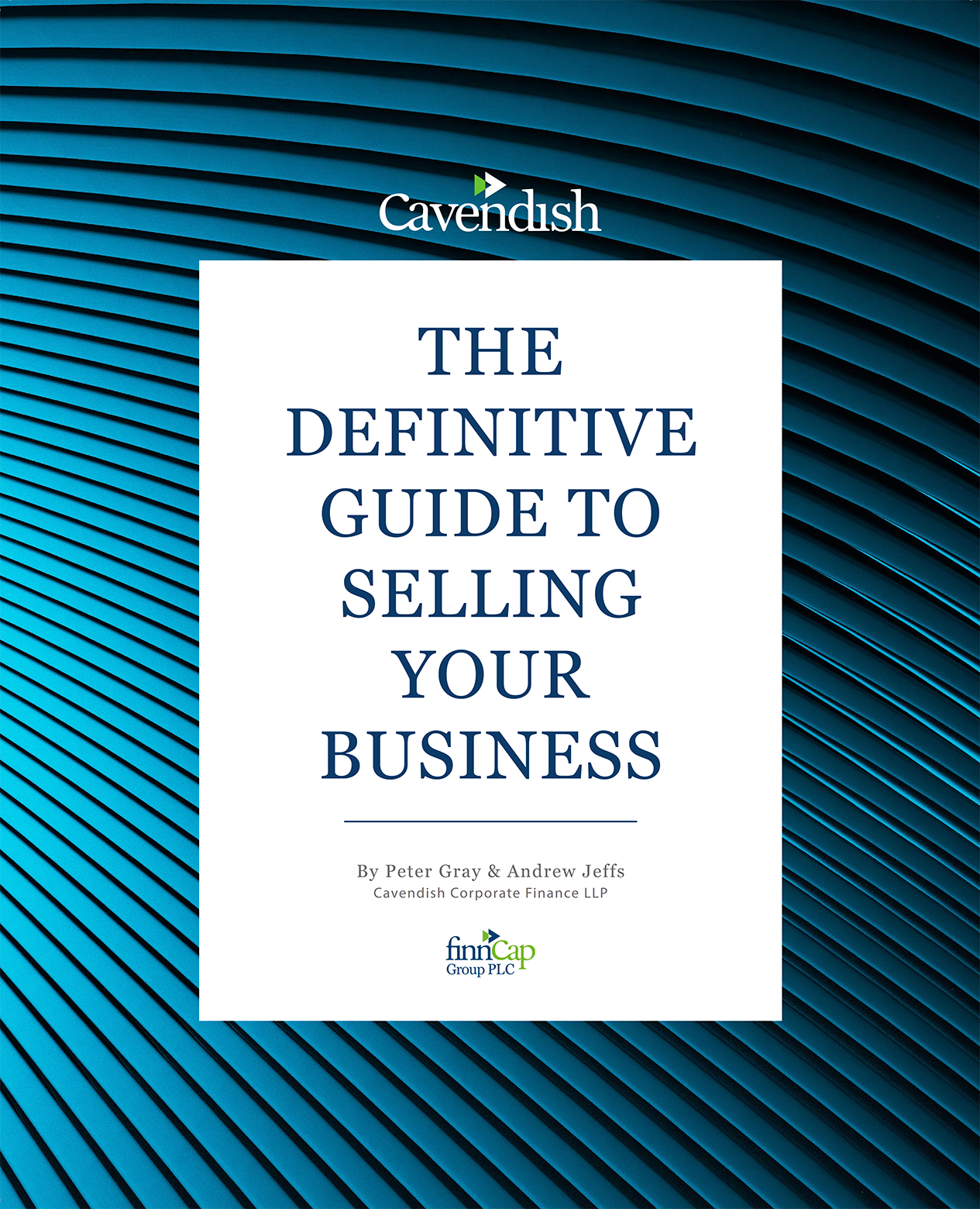Selling Your Business: How to time your exit By Peter Gray, Partner, Cavendish Corporate Finance
Time is money – so they say. And when it comes to selling a business, it’s certainly a crucial factor when it comes to maximising value. But working out the perfect time to exit a business is often difficult.
To help address this, Cavendish has produced the Definitive Guide to Selling Your Business, in which we look in detail at how to time an exit. There are several tips we give prospective sellers.
Have Regard to Market Conditions
The most obvious indicator of optimal timing is the M&A market. The more buoyant it is, the easier it should be to sell a business and the higher the valuation achieved. A strong economy generally means a strong M&A market, while recessions make selling a business more difficult - financial projections for a business will seem less credible and acquisition finance (particularly bank debt) is less readily available. In an ideal world, you should be selling in a buoyant M&A market and where the sector in which your business operates is regarded favourably by investors and buyers.
React to Valuation Bubbles
Valuation bubbles, where exceptionally high valuations are being observed in certain sectors, can occur for all sorts of reasons, including an acquisition spree by an overseas acquirer. The important thing to remember is that eventually these bubbles will burst and a business operating in one of these hot sectors is likely to be less valuable as a result. Therefore, if your sector is experiencing a valuation bubble, it is wise to consider an exit.
Remember The Value Of Critical Mass
As a business grows in size, not only will it become more valuable thanks to its growing profit stream, but it will generally be accorded a higher valuation multiple on those profits by purchasers. The bigger the business, the better its risk profile and earnings quality, and more purchasers will come into play (particularly overseas buyers).
Have A Decent Trading History & Growth Forecast
Ideally, owners looking to sell will want a three year track record (or more) of rising revenue and profits to show a potential purchaser, together with a credible three year growth plan. Selling a company whose turnover or profits are flat-lining or declining is difficult, so it’s important to sell when the business is on an upward curve and not when performance is peaking. The old adage “leave something on the table for the next man” should be heeded when selling your business.
Consider A Partial Sale
In many cases, it’s an emotional attachment to the business that prevents an owner from selling. Therefore, if you are (justifiably) concerned that all – or a lot – of your wealth is tied up with the business, but don’t think it’s the right time to exit completely, a partial sale to a private equity house or HNWI to de-risk your financial position is worth considering.
Avoid A Forced Sale
The one overriding rule in timing an exit is to sell when there’s no absolute need to do so. This way you can always pull out of a sale process if you are not happy with the sale price (or for any other reason). By contrast, if a buyer knows that you need to sell, they’ll use that knowledge to their advantage.
Remember That Exiting Takes Time
Finally, it should not be forgotten that selling a business takes between six to nine months, on average. As for the planning and preparation, that can start anywhere between three years to 12 months before a sale. And if you are looking to retire following the transaction, you should remember that unless you have a sufficiently strong management team in place, the purchaser may require you to remain in the business for a year or two afterwards. So take this timeline into account when selling your company.
If you are looking to maximise the value of your business, getting the timing of an exit right is key. Picking the optimal time to sell is not an easy exercise, but by following these rules you will increase your chances of doing so.
Peter Gray is one of the longest standing partners at Cavendish Corporate Finance. You can buy Cavendish’s Definitive Guide to Selling Your Business here: http://www.cavendish.com/produ...
























